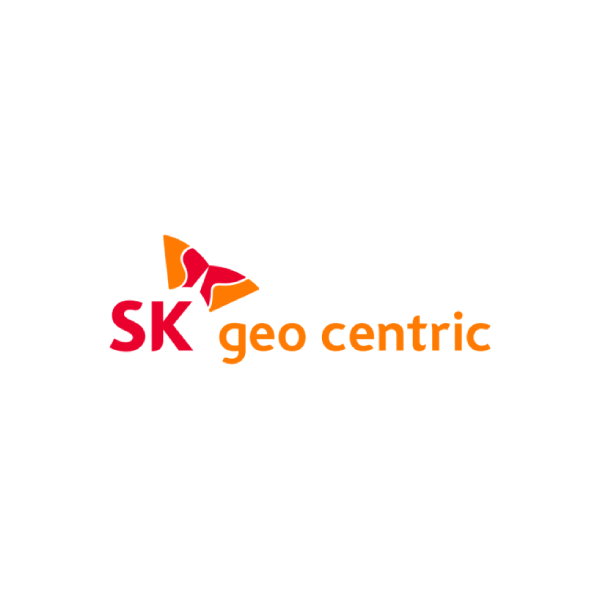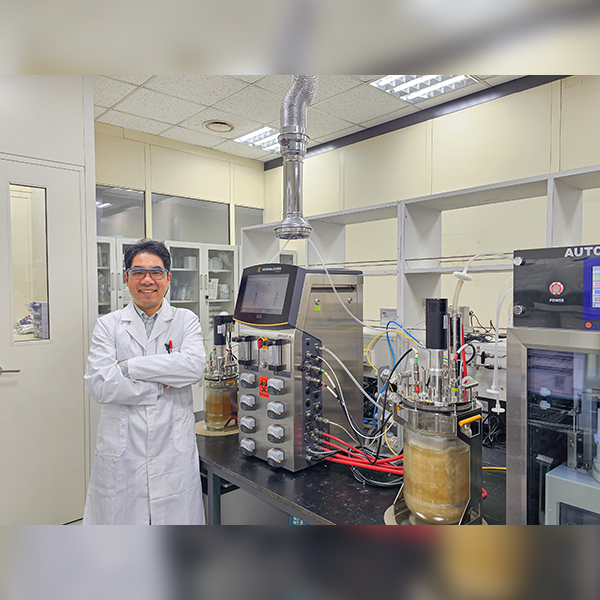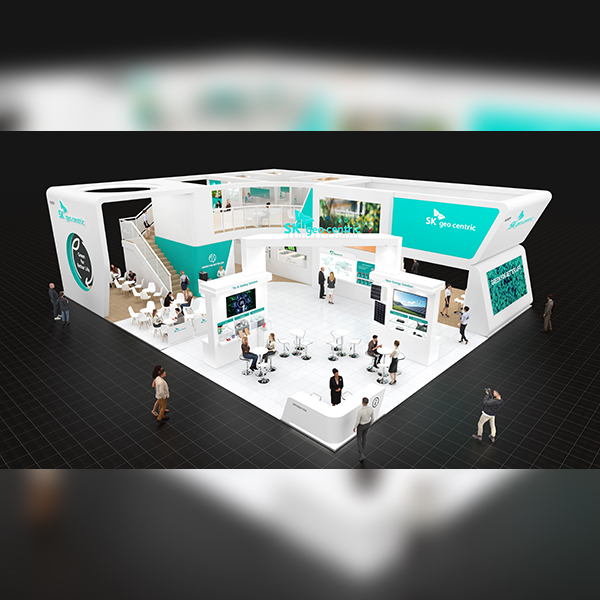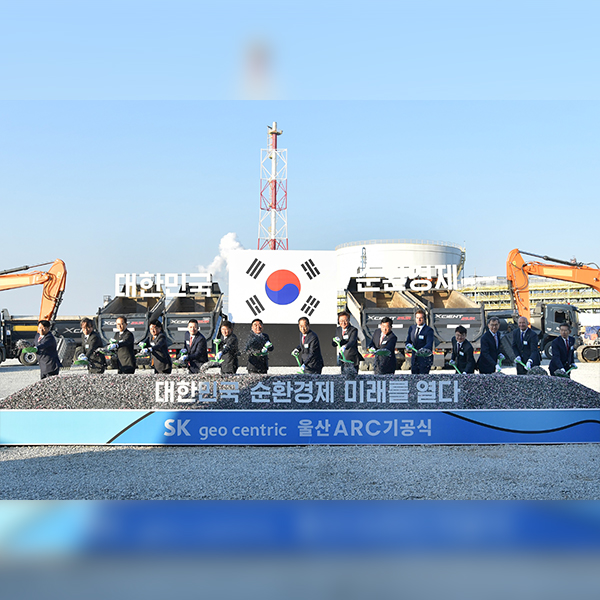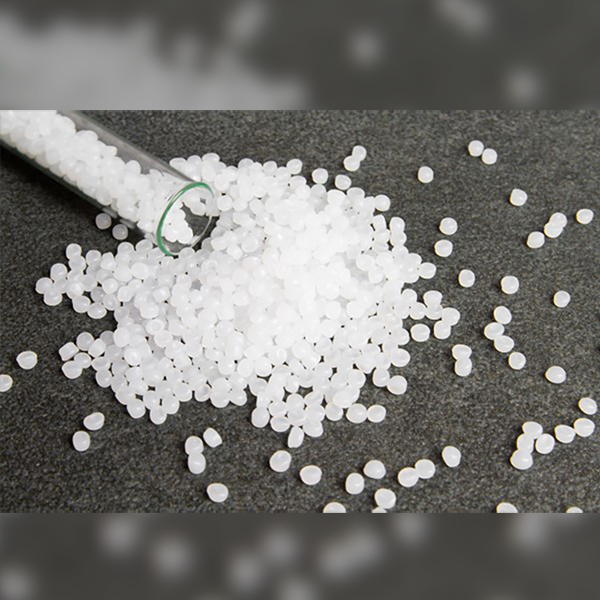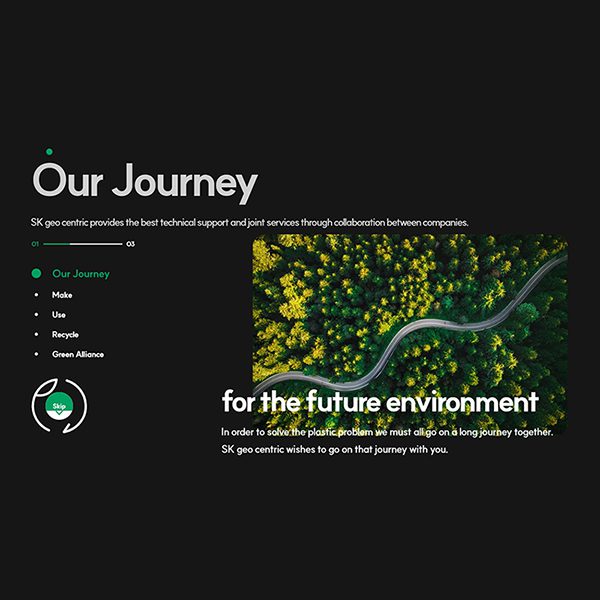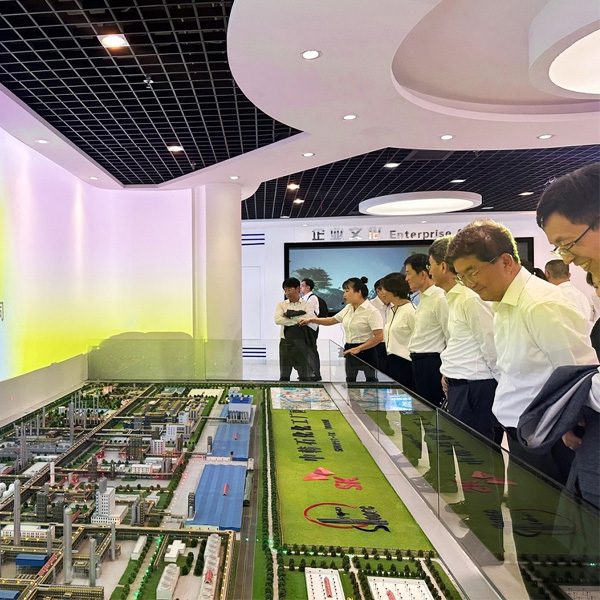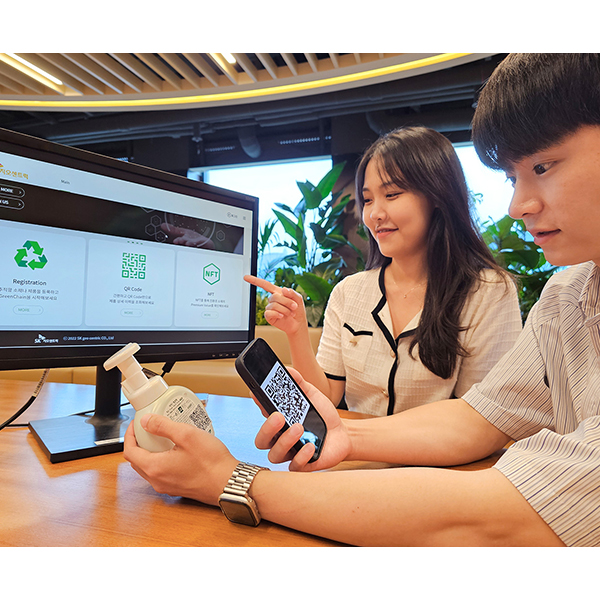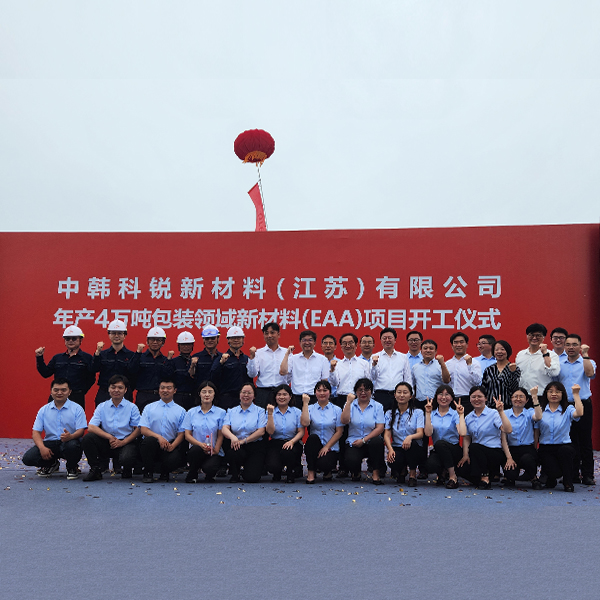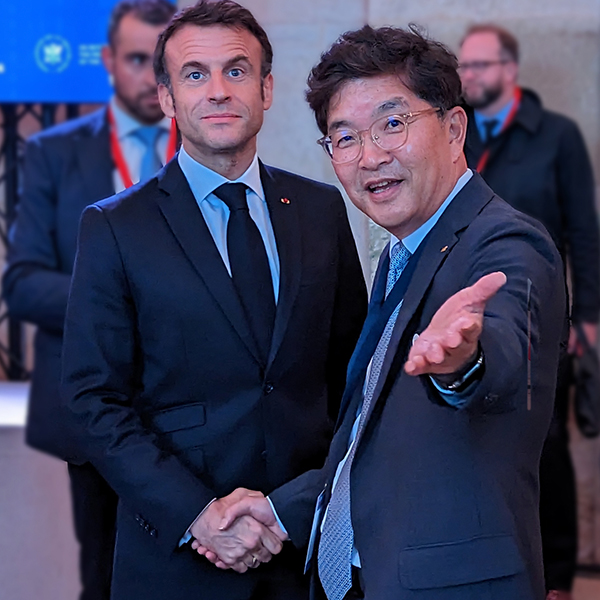 SK Geo Centric
SK Geo Centric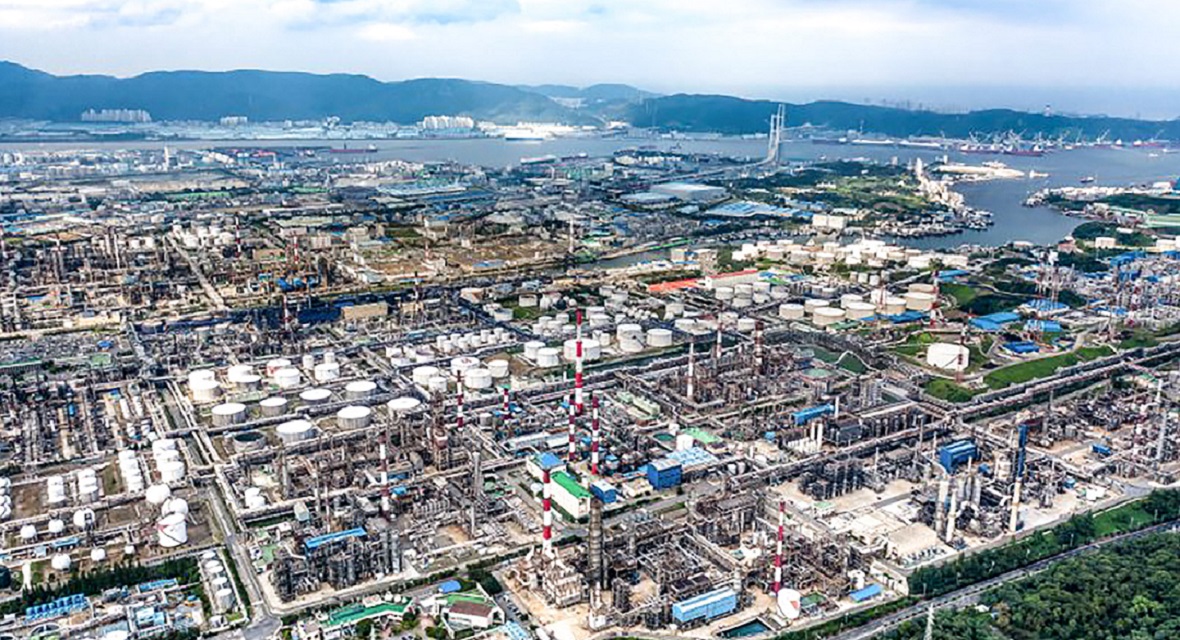
▲ The view of SK Innovation’s Ulsan Complex, where SK Geo Centric’s Advanced Recycling Cluster will be constructed.
SK Geo Centric, which aims to be the largest urban oil field in the world, revealed a detailed plan about the construction of its Advanced Recycling Cluster in Ulsan, South Korea, by late 2025. Once the construction is completed, the company will become the first in the world to operate multiple chemical recycling facilities at one location.
The Advanced Recycling Cluster that SK Geo Centric plans to establish is worth about KRW 1.7 trillion, and will be built on a 215,000㎡ (about the size of 22 soccer fields) site within Ulsan CLX, SK Innovation’s main production base. The construction will begin in September 2023 and operation is expected to start by the end of 2025. The cluster will be able to recycle around 250,000 tons of waste plastics each year.
SK Geo Centric’s Advanced Recycling Cluster will be the world’s first total complex that will combine three major chemical recycling processes in one location. Ulsan CLX will house three essential chemical plastic recycling technologies: Ultra-Pure Recycled Polypropylene (hereinafter “Ultra-Pure Recycled PP”) extraction technology, Polyethylene Terephthalate (hereinafter “PET”) Depolymerization technology, and Pyrolysis post-treatment technology for chemically converting waste plastic to fuel.
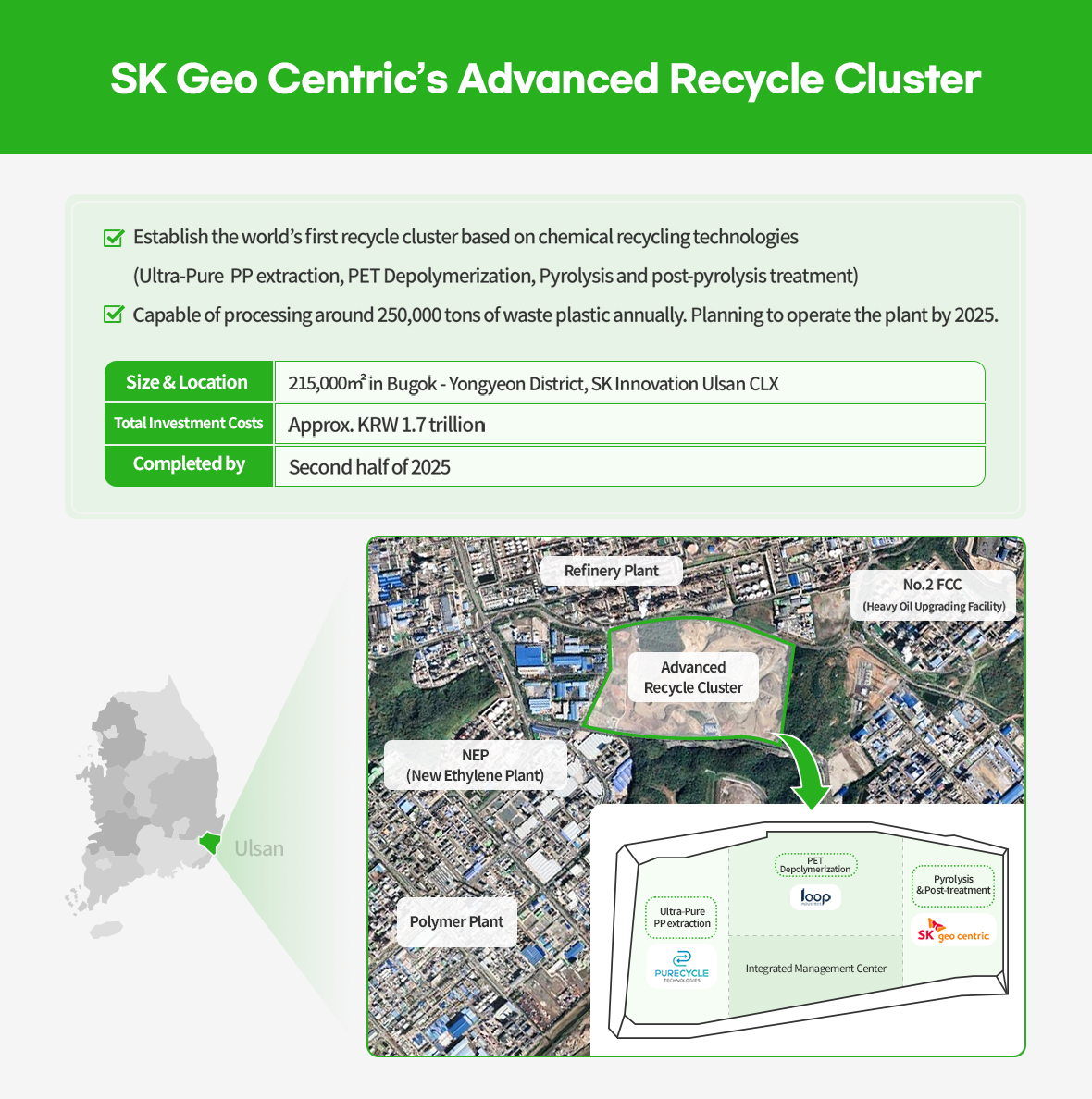
| SK Geo Centric becomes the first in the world to gather three major chemical recycling technologies in one cluster
The adoption of chemical recycling technology will be a game-changer, as the new factory will melt, instead of grind, plastic waste into transparent recycled plastic. Unlike mechanical recycling, where plastic waste is put through a grinder and compressed into plastic pellets without impurities sifted out of them, chemical recycling allows any form of plastic, including mixed colored plastic scrap, to easily separate pigments and other foreign substances from plastic. Therefore, compared to mechanically recycled plastic products, the quality of chemically recycled plastic products is almost the same as that of conventional plastic products. Plus, chemical recycling business is expected to grow rapidly in the future as it enables repeatable recycling, providing fundamental solutions to plastic issues.
“We expect the Advanced Recycling Cluster to produce approximately 220,000 tons of pure plastics from 250,000 tons of waste plastics,” said Park Chun-seok, GT1 squad professional leader at SK Geo Centric. He added, “The biggest advantage of chemical recycling (PET Depolymerization) is that it will decompose plastic wastes in molecular units and re-polymerize them after removing coloring agents and remnants (pollutants).”
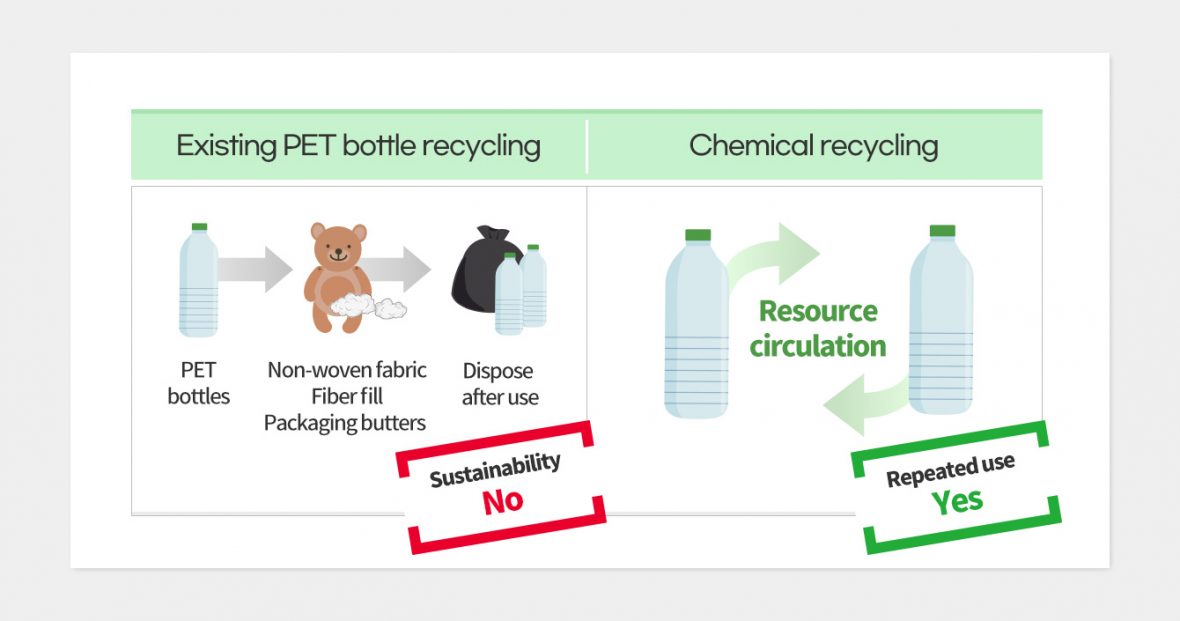
Aside from developing its own technology, SK Geo Centric has secured three major chemical recycling processing technologies through collaboration with its global partners, who have technologies for Ultra-Pure Recycled PP extraction and PET Depolymerization. The scope of collaboration includes technology adoption, establishment of joint ventures, equity investment, and other means.
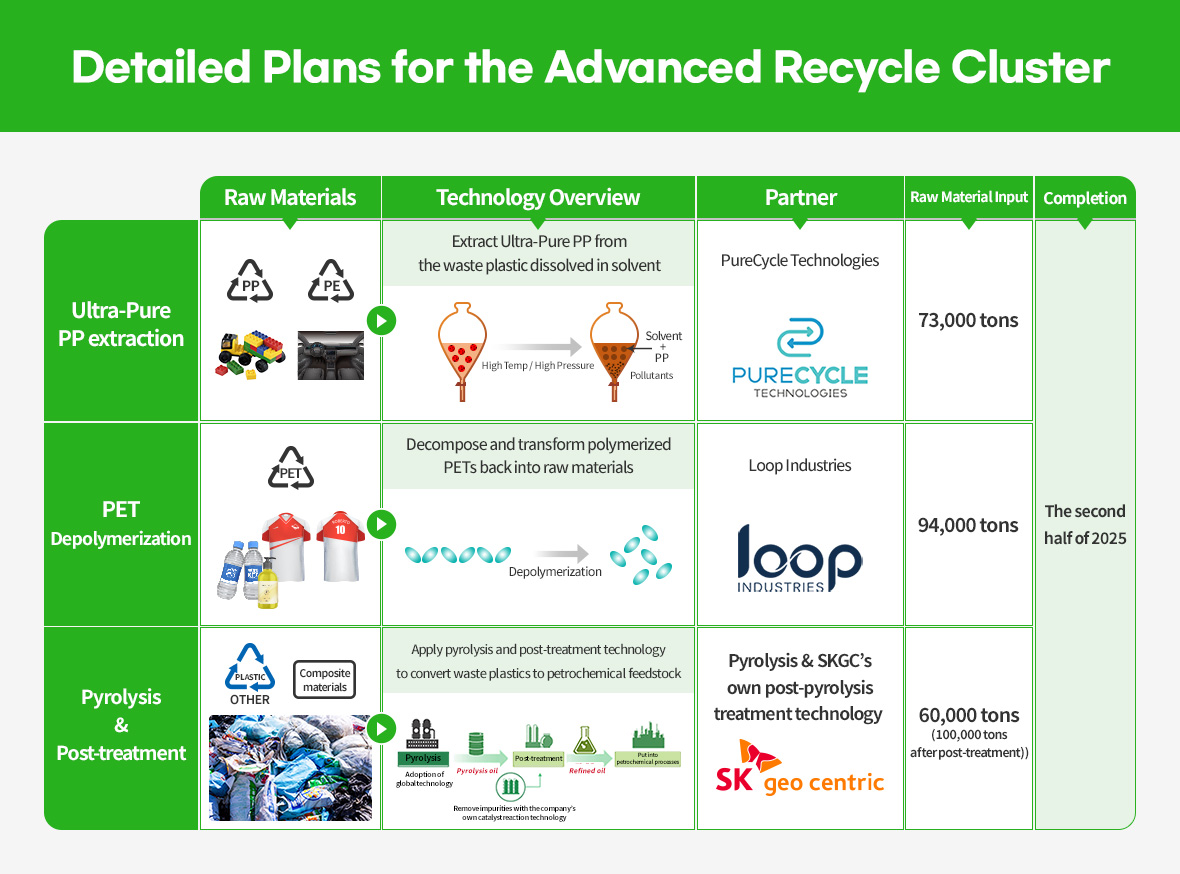
The first technology to be presented among three major chemical recycling technologies of the Advanced Recycling Cluster is to extract Ultra-Pure Recycled PP by melting waste plastics in solvent. Polypropylene (PP), which is widely used in various areas, such as food packaging, automobile interior materials, and home appliances, gets dissolved in solvent before being subjected to high temperature/pressure to transform it into the state of matter between gas and liquid. Following that, it will be injected into a polypropylene structure to extract pure polypropylene for recycling after removing pollutants.
To do so, SK Geo Centric signed a Memorandum of Understanding (MOU) with American firm PureCycle Technologies in August 2021, and then a joint venture agreement (JVA) to develop a chemical recycling manufacturing plant in October this year. PureCycle Technologies is the world’s only company that can remove odors, colors and other contaminants from PP waste feedstock and transform it into an Ultra-Pure Recycled Resin (“UPRP”) that can be continuously reused. The JVA marks the first commercial production of chemically recycled PP in Asia for both companies. It is expected that SK Geo Centric will expand its recycling business internationally as the company possesses exclusive sales rights in Korea, as well as the right to conduct business in China and key Southeast Asian nations.
The second is Depolymerization technology, which decomposes PET polymers into basic raw elements. The technology allows for the breakdown of polymers made up of plastics such as colored PET bottles and polyester textiles into basic plastic raw materials. In other words, it is the process of dissolving polymers into monomers, and the gist of the technology is to obtain products with high purity no matter what the raw materials are while using the least amount of energy.
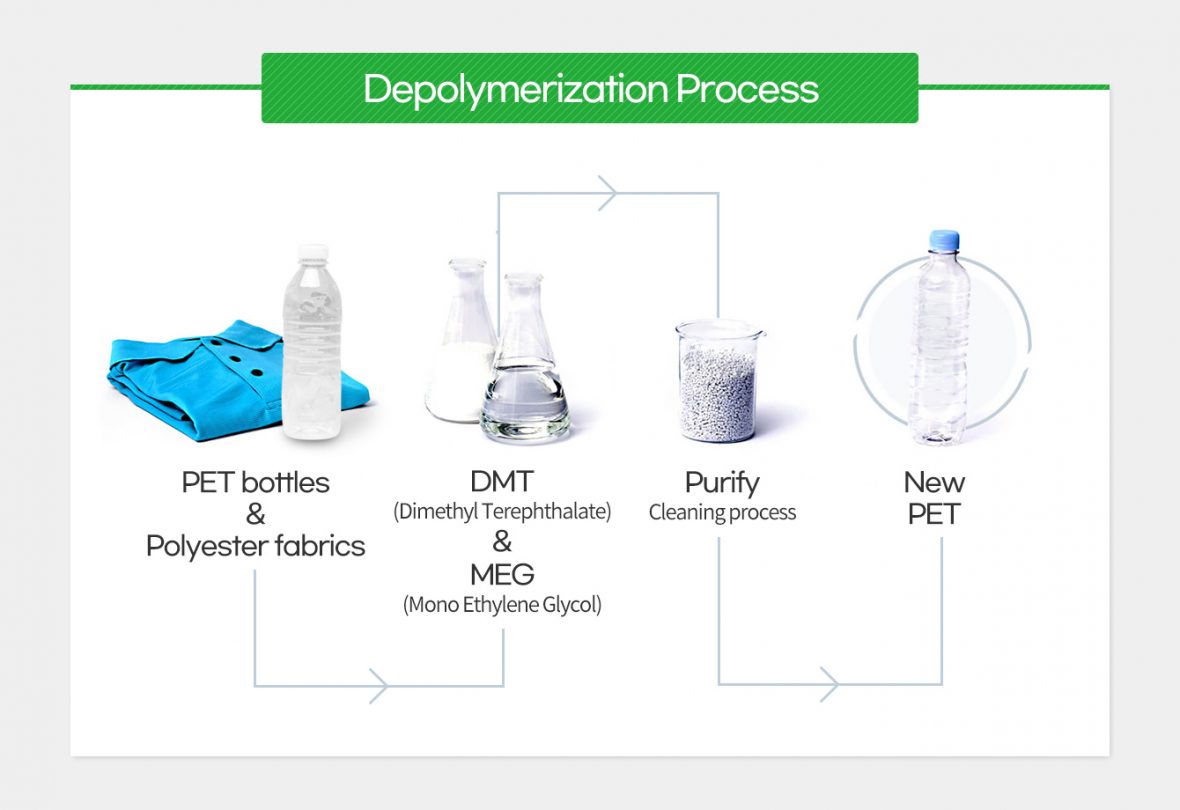
After initially processing carpets, polyester fabrics, colored PET bottles, and others, the materials are finely crushed and grounded in the reactor before proceeding to more purification processes. They will then be transformed into PET that is as transparent and clean as those produced directly from petroleum, to the level of being able to be used for packaging for food or drinking water.
To secure this technology, SK Geo Centric made an equity investment in Loop Industries, a Canadian company that has breakthrough recycling technology for waste PET bottles and waste fabrics, in June 2021, and as a result, it obtained exclusive rights in the Asian Region. Loop Industries already introduced the recycled Evian water bottle to Korean region with its own depolymerization technology.
Finally, the Advanced Recycling Cluster will house the pyrolysis post-treatment facility developed independently by SK Geo Centric. Pyrolysis oil is a refined oil produced by heating waste plastics such as vinyl in an anaerobic state at high temperatures ranging from 300 to 800°C, which can then be reprocessed into various petrochemical products such as naphtha and diesel after post-treatment.
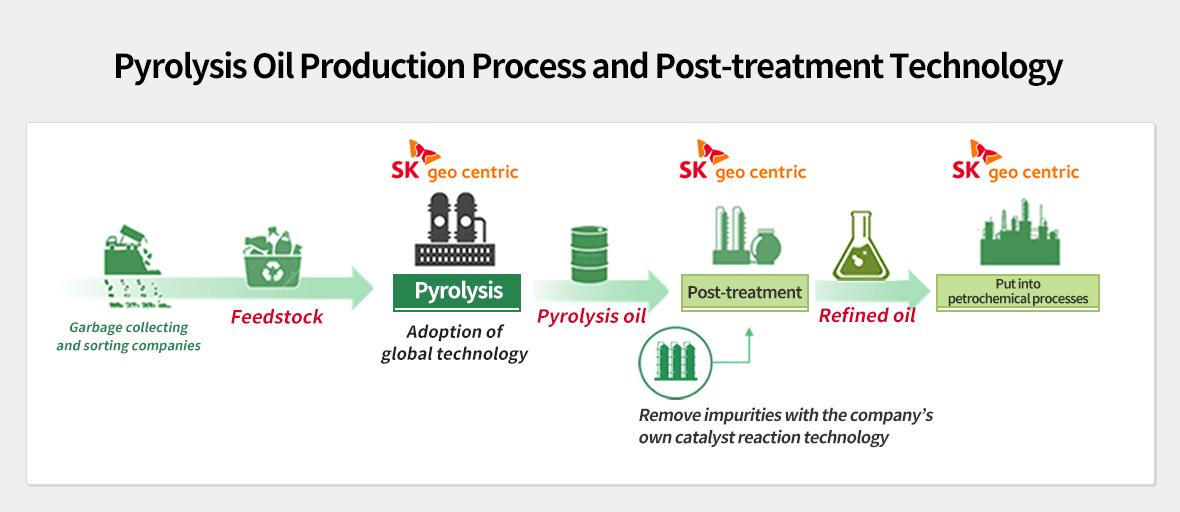
Pyrolysis oil itself is being produced in many other plants, but it can be mainly used for indoor heating. However, SK Innovation and SK Geo Centric’s own developed Pyrolysis post-treatment technology allows pyrolysis oil to replace crude for petrochemical processes, thereby enabling an oil field within a city (an urban oil field). This is why it is acknowledged as a core technology for establishing a virtuous plastic circulation system. For the first time in Korea, SK Geo Centric received the domestic certification issued by the Ministry of Environment for the company’s development of “the external business methodology to utilize pyrolysis oil from plastic wastes as the raw material for refined petroleum products.” SK Geo Centric also built a pyrolysis post-treatment scale-up pilot plant in SK Innovation’s Institute of Environmental Science & Technology research complex in Daejeon, South Korea.
As such, SK Geo Centric is sharpening its competitive edge and securing the synergy effect between other processes by acquiring all three major recycling technologies, and the company will contribute to establishing and leading the circular economy. In the future, SK Geo Centric intends to expand its Advanced Recycling Cluster throughout Asia and Europe.
In order to do so, this June, the company signed an MOU with SUEZ, a French environmental enterprise, to form a joint venture for plastic recycling. Last October, the company also signed an MOU with Haier, a global home appliance producer, to collaborate on recycling plastics such as PP in China.
“We will make an unrelenting effort to ensure that Korean enterprises lead the global plastic recycling industry,” said Na Kyung-soo, CEO of SK Geo Centric. He added, “We will also make every effort to reduce the amount of plastic that is incinerated or dumped in landfills and to help reduce carbon emissions.”

–SK Geo Centric revealed the world’s first “plastic waste recycling cluster” and new eco-friendly brand “CYCLUS” at K 2022
–Following SK Geo Centric to visit global partners ② PureCycle Technologies
–Following SK Geo Centric to visit global partners ① Loop Industries
–SK Geo Centric making equity investment into PureCycle Technologies to expand plastic recycling business
–SK Geo Centric to complete its goals toward plastic waste recycling through global partnerships
–SK Geo Centric to participate as equal partner in JV with with Loop Industries and Suez to build recycled PET facility in Europe
–SK Geo Centric invests in building new plastic recycling plant jointly with PureCycle Technologies










 Youtube
Youtube Facebook
Facebook Instagram
Instagram Linkedin
Linkedin








